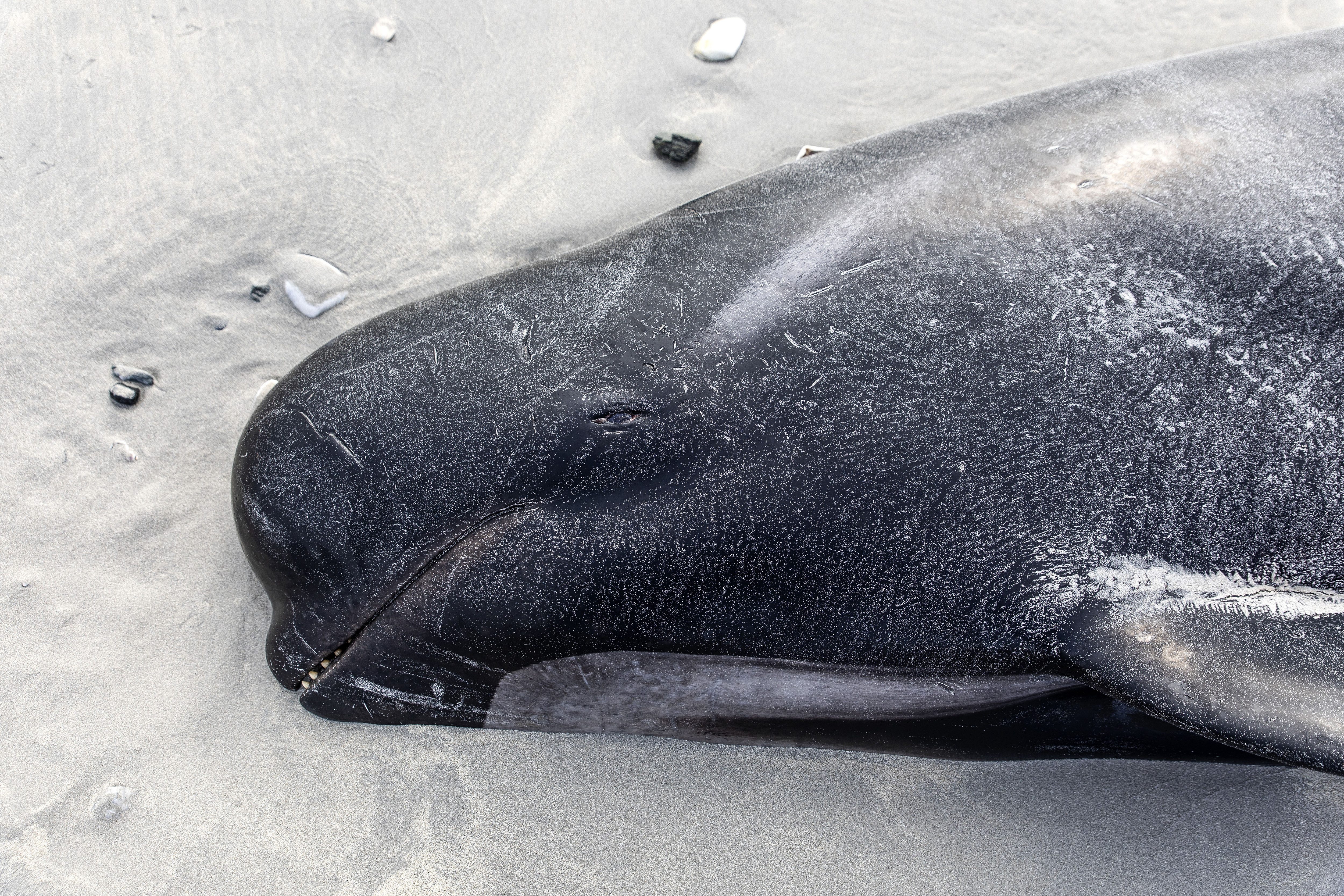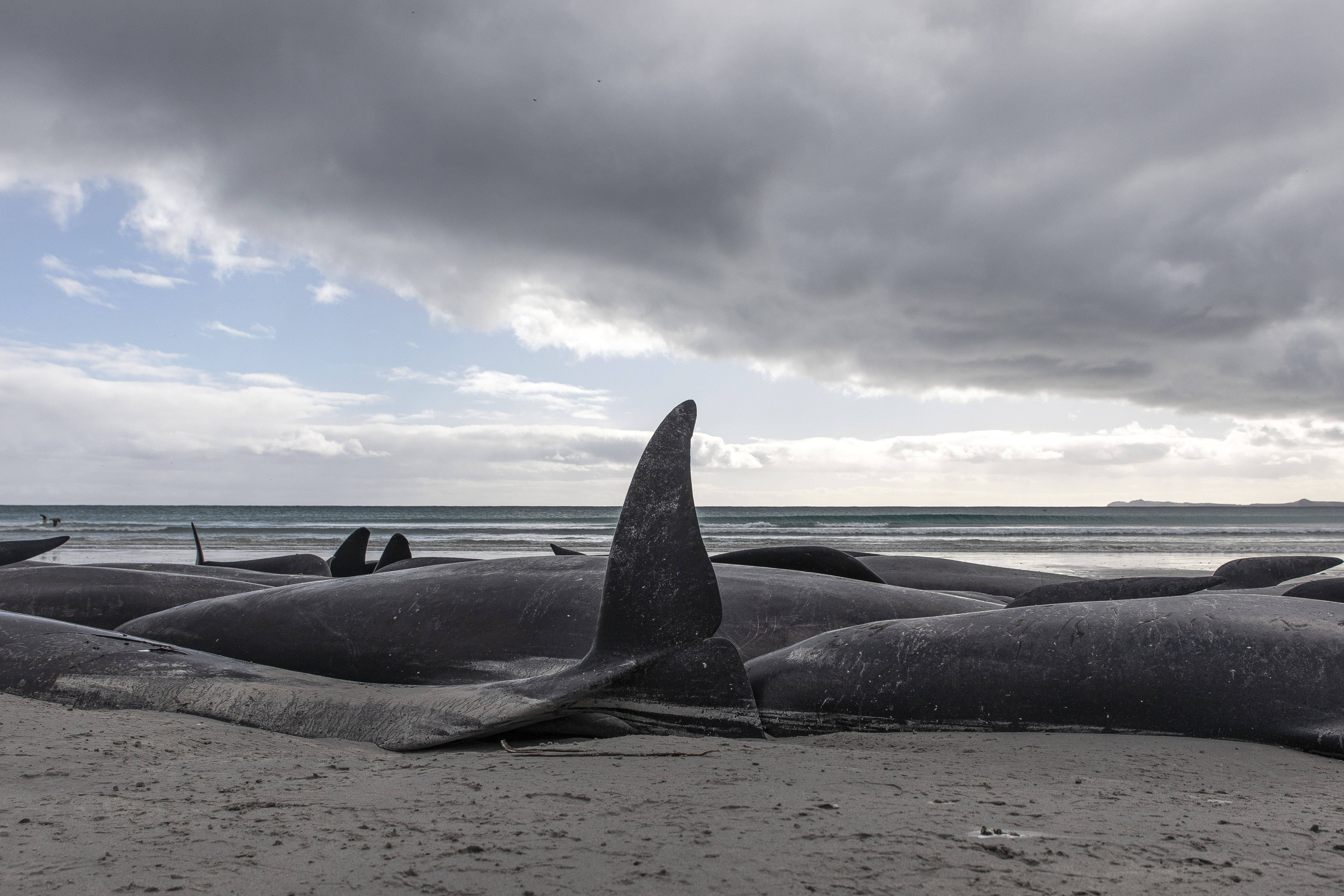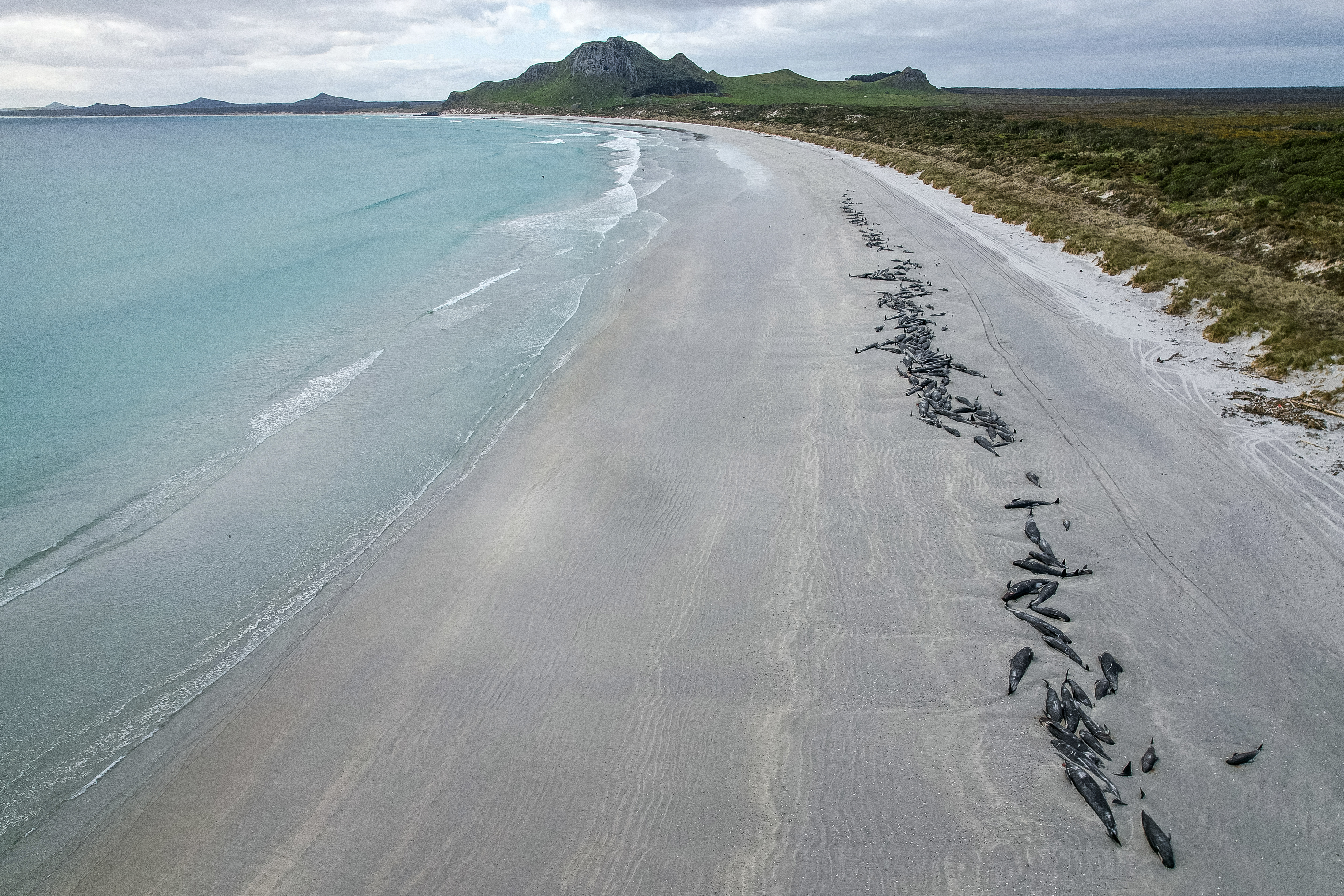477 whales die in ‘heartbreaking’ New Zealand strandings
The pilot whales were found on the Chatham Islands.

Some 477 pilot whales have died after stranding themselves on two remote New Zealand beaches over recent days, officials say.
None of the stranded whales could be refloated and all either died naturally or were euthanised in a “heartbreaking” loss, Daren Grover from the Project Jonah rescue charity said.
The whales beached themselves on the Chatham Islands, which are home to about 600 people and located about 500 miles east of New Zealand’s main islands.

The deaths come two weeks after about 200 pilot whales died in Australia after stranding themselves on a remote Tasmanian beach.
“These events are tough, challenging situations,” the Department of Conservation wrote in a Facebook post. “Although they are natural occurrences, they are still sad and difficult for those helping.”
Mr Grover said the remote location and presence of sharks in the surrounding waters meant they could not mobilise volunteers to try to refloat the whales as they have in past stranding events.

Mass strandings of pilot whales are reasonably common in New Zealand, especially during the summer months.
Scientists do not know exactly what causes the whales to strand, although it appears their location systems can get confused by gently sloping sandy beaches.
Mr Grover said there is a lot of food for the whales around the Chatham Islands, and as they swim closer to land, they would quickly find themselves going from very deep to shallow water.

“They come closer and closer to shore and become disoriented. The tide can then drop from below them and before they know it, they’re stranded on the beach.”
Because of the remote location of the beaches, the whale carcasses will not be buried or towed out to sea, as is often the case, but instead will be left to decompose, Mr Grover said.
“Nature is a great recycler and all the energy stored within the bodies of all the whales will be returned to nature quite quickly,” he said.





